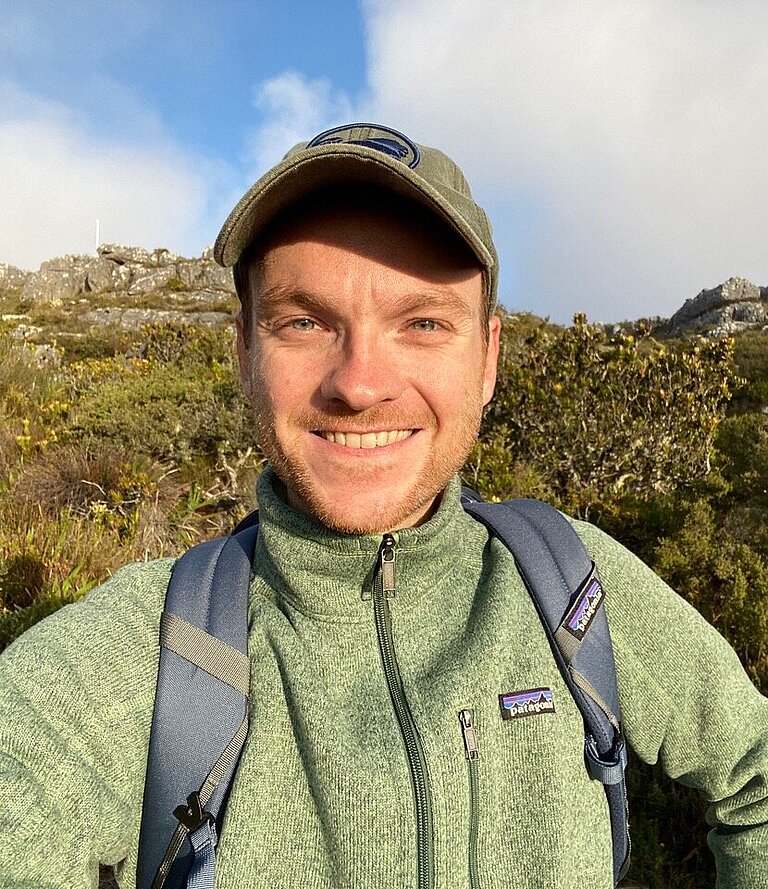Marco Smolla

Max Planck Institute for Evolutionary Anthropology
Department of Human Behavior, Ecology and Culture
Deutscher Platz 6
D - 04103 Leipzig, Germany
phone: +49 341 3550 338
e-mail: marco_smolla@[>>> Please remove the text! <<<]eva.mpg.de
website: https://marcosmolla.com
Research interests
I am computational and evolutionary biologist with a background in behavioural physiology and ecology. My research focusses on how we make culture and how this affects us. I am using simulation models and existing data to study how culture emerges from individual and inter-individual actions and how it spreads in populations. I explicitly model dynamic social networks to simulate real-world interaction and information sharing patterns that change over time. I am currently working towards a modelling framework that is more explicit about the process of learning, taking into account insights from developmental psychology, ethnography, and anthropology.
Curriculum Vitae
Current position
Postdoctoral fellow in Dr Anne Kandler’s lab at the Department of Human Behavior, Ecology and Culture, Max Planck Institute for Evolutionary Anthropology
Appointments held
| 2017-2021 | Postdoctoral fellow in Dr Erol Akçay’s lab at the Department of Biology, University of Pennsylvania |
Education
| 2017 | PhD in Evolutionary Biology, University of Manchester, United Kingdom (supervision by Dr Susanne Shultz and Dr Tucker Gilman) |
| 2011 | Diplom (Masters equivalent) in Biology, University of Würzburg, Germany (supervision by Dr Christoph J. Kleineidam) |
| 2008 | Vordiplom in Biology, University of Jena, Germany |
Grants & awards
| 2013 | Royal Society Studentship for a three-year PhD project at the University of Manchester |
| 2012 | Internship Stipend ($2,400), Smithsonian Tropical Research Institute |
Publications
2023
Lew-Levy, S., van den Bos, W., Corriveau, K., Dutra, N. B., Flynn, E., O'Sullivan, E., Pope, S., Rawlings, B., Smolla, M., Xu, J., & Wood, L. (2023). Peer learning and cultural evolution. Child Development Perspectives, 17(2), 97-105. |
|
Smolla, M., & Akçay, E. (2023). Pathways to cultural adaptation: the coevolution of cumulative culture and social networks. Evolutionary Human Sciences, 5: e26, pp. 1-20. |
2022
Perry, S. E., Carter, A., Foster, J. G., Nöbel, S., & Smolla, M. (2022). What makes inventions become traditions? Annual Review of Anthropology, 51, 419-436. |
|
Acerbi, A., Mesoudi, A., & Smolla, M. (2022). Individual-based models of cultural evolution: A step-by-step guide using R. Routledge. |
2021
Perry, S., Carter, A., Smolla, M., Akçay, E., Nöbel, S., Foster, J. G., & Healy, S. D. (2021). Not by transmission alone: The role of invention in cultural evolution. Philosophical Transactions of the Royal Society B: Biological Sciences, 376(1828): 20200049. |
|
Smolla, M., Jansson, F., Lehmann, L., Houkes, W., Weissing, F. J., Hammerstein, P., Dall, S. R. X., Kuijper, B., & Enquist, M. (2021). Underappreciated features of cultural evolution. Philosophical Transactions of the Royal Society B: Biological Sciences, 376(1828): 20200259. |
2020
Acerbi, A., Mesoudi, A., & Smolla, M. Individual-based models of cultural evolution. A step-by-step guide using R. Open Science Foundatoin (OSF).
DOI
Perry, S., & Smolla, M. (2020). Capuchin monkey rituals: An interdisciplinary study of form and function. Philosophical Transactions of the Royal Society B: Biological Sciences,
375(1805), 20190422.
DOI
Morsky, B., Smolla, M., & Akçay, E. (2020). Evolution of contribution timing in public goods games. Proceedings of the Royal Society B: Biological Sciences, 287(1927), 20200735.
DOI
Gilman, R. T., Johnson, F., & Smolla, M. (2020). Competition for resources can promote the divergence of social learning phenotypes. Proceedings of the Royal Society B: Biological
Sciences, 287(1921), 20192770
DOI
2019
Smolla, M., Akçay, E. (2019). Cultural selection shapes network structure. Science Advances, 5(8), eaaw0609.
DOI
Smolla, M., Rosher, C., Gilman, R. T., Shultz, S. (2019). Reproductive skew affects social information use. Royal Society Open Science, 6(7), 182084.
DOI
2018
Smolla, M., Invernizzi, E., Bazhydai, M., Casoli, M., Deffner, D., Faria, G. S., ... Uchiyama, R. (2018). Second Annual Workshop of the Association of Early-Career Social Learning Re-
searchers in St Andrews, Scotland. Evolutionary Anthropology: Issues, News, and Reviews.
DOI
2016
Kranstauber B., SmollaM., Safi K., 2016. Similarity in spatial utilisation distributions measured by the Earth Mover’s Distance. Methods Ecol. Evol.
DOI
Smolla, M., Alem, S., Chittka, L., Shultz, S., 2016. Copy-when-uncertain: bumblebees rely on social information when rewards are highly variable. Biology Letters.
DOI
2015
Smolla, M., Galla, T., Gillman, T., Shultz, S., 2015. Competition for resources can explain patterns of social and individual learning in nature. Proceedings of the Royal Society B.
DOI
2014
Smolla, M., Nagel, M., Ruchty, M., Kleineidam, C.J., 2014. Clearing pigmented insect cuticle to investigate small insects’ organs in-situ using confocal laser-scanning microscopy
(CLSM). Arthropod Structure and Development.
DOI
 Open Access
Open Access